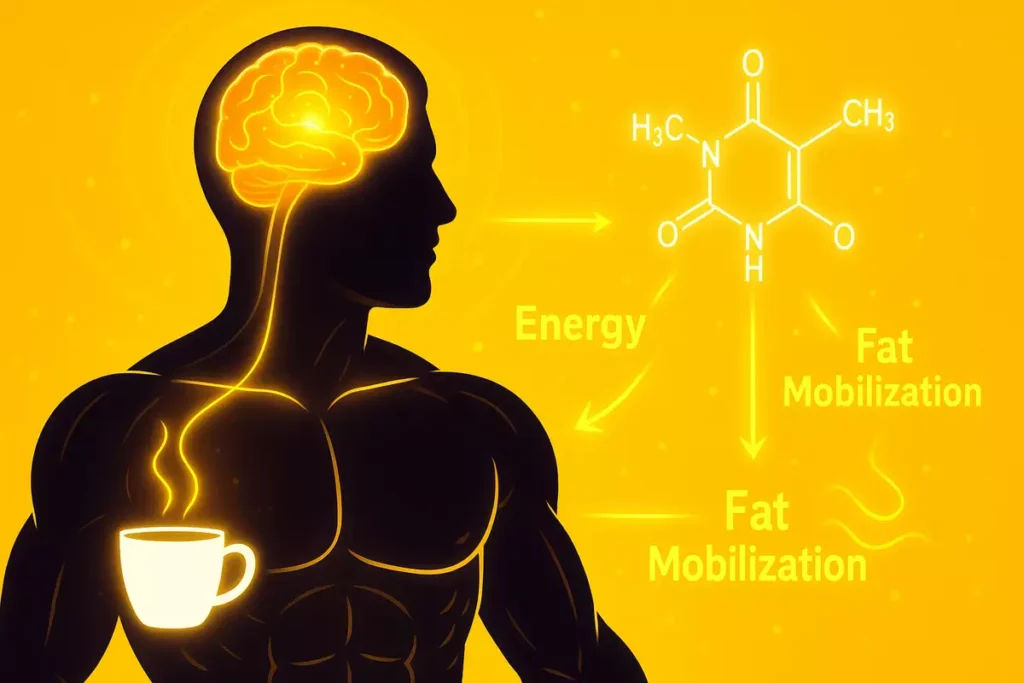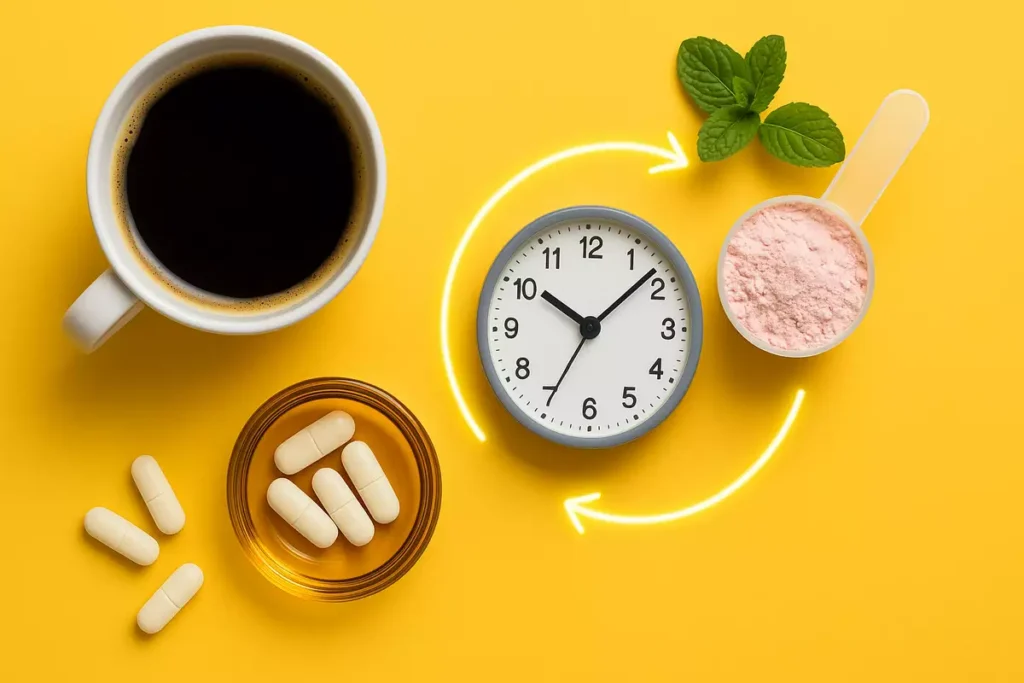Can one simple supplement give both endurance and strength athletes a serious performance edge? Absolutely—if it’s caffeine.
Whether you’re crushing long runs or heavy lifts, caffeine has earned its place as a powerful pre-workout tool.
But does it help everyone equally? And should you use it differently based on your training goals?
In this article, I’ll break down how caffeine affects endurance vs strength performance, backed by science and real-life gym experience.
Table of contents
Who Benefits Most from Caffeine?
Let’s get straight to the point—endurance athletes tend to gain more consistent benefits from caffeine than strength athletes.
If your training involves long-distance running, cycling, or extended cardio, caffeine can significantly delay fatigue and boost performance.
That said, strength and power athletes also see real benefits, especially when it comes to focus, alertness, and explosive output. But the effects can be less predictable and more dependent on your personal tolerance and training style.
From my own experience and coaching background, I’ve seen caffeine work wonders in both camps—but the endurance crew usually sees faster, more noticeable results.
For more on how caffeine may affect training differently by individual, check out this comparison of caffeine vs theacrine.
How Caffeine Works in the Body

Caffeine doesn’t just give you a mental boost. It stimulates your central nervous system, reduces perceived effort, and increases fat oxidation, making it a powerful ergogenic aid.
It blocks adenosine (the chemical that makes you feel tired), increases dopamine, and helps mobilize stored fat for energy. The result? You feel more alert, less tired, and ready to push through physical challenges.
These mechanisms make caffeine a popular choice for both endurance and strength athletes. However, the level of impact can differ based on the activity.
For a deeper dive into how caffeine interacts with other performance enhancers, check out this beta-alanine, creatine, and caffeine stack guide.
Caffeine for Endurance Athletes
Endurance athletes tend to benefit the most from caffeine.
During my own cutting phase, I started taking 200 mg caffeine before fasted morning walks. Instead of crashing after 30 minutes, I could easily stretch my walks to 50 minutes without fatigue.
One of my clients, Lucas from Brazil, who’s an amateur cyclist, started using caffeine capsules pre-ride. His stamina improved noticeably—especially on uphill rides where his energy used to dip.
What caffeine does for endurance athletes:
- Delays time to exhaustion
- Increases fat oxidation
- Helps preserve glycogen stores
- Enhances aerobic focus and consistency
Recommended timing & dose:
- 150–250 mg around 30–45 minutes before training
Also, caffeine helps regulate energy use during fasted training. Learn more about this benefit in the caffeine for cutting and appetite control guide.
Caffeine for Strength and Power Training

Now let’s talk about strength training.
If you’re a powerlifter, bodybuilder, or just love intense gym sessions—caffeine can help sharpen your focus and increase explosiveness.
I often take 250 mg caffeine through pre-workout before a tough leg session. It doesn’t make the weight lighter, but it sure makes me more aggressive and focused under the bar.
A client of mine, Rajiv from India, told me his deadlift performance improved once he started supplementing with caffeine. He felt more dialed in and less hesitant during heavy pulls.
What caffeine helps with in strength training:
- Improved neuromuscular firing
- Increased power output (especially for high reps)
- Better focus and training aggression
Limitations:
- Less effective for single maximal lifts
- Tolerance builds quickly
To avoid overstimulation or diminishing returns, it’s smart to cycle caffeine or combine it strategically. A good example is the caffeine + beta-alanine stack, which enhances both energy and muscular endurance.
Science-Backed Comparison: Endurance vs Strength Response
Scientific studies consistently show stronger and more predictable effects in endurance athletes.
Research reveals that endurance athletes can see up to 12% improvements in time to fatigue. Meanwhile, strength athletes often report improved focus and slight performance boosts in multi-rep sets—but with more individual variation.
That said, context matters.
Strength athletes who train in high-volume or circuit-style formats often see more benefit than those doing low-rep, heavy sets with long rest intervals.
Want to learn more about how caffeine may influence hormones related to strength training? Here’s a breakdown of caffeine and testosterone interactions.
Best Caffeine Sources and Timing Strategies

I’ve tried it all—black coffee, caffeine pills, and pre-workout mixes.
For cardio, coffee works perfectly. For gym days, I like pre-workouts with 200–250 mg caffeine to enhance mental drive.
Clients’ preferences:
- Nina from Germany uses low-dose pills before training to avoid jitters
- Mateo from Spain sticks to 100 mg before soccer drills and swears by its light, clean energy
Best practices:
- Take caffeine 30–45 minutes before training
- Start with around 3 mg/kg body weight
- Avoid it after 4 PM to protect sleep and recovery
To stay on the clean side, check out this guide to best clean caffeine sources. And if you’re stacking with creatine, make sure to read this caffeine + creatine interaction guide.
Final Verdict: Is Caffeine Right for You?
If you’re an endurance athlete—you should absolutely be using caffeine as part of your performance strategy.
It helps push past physical plateaus, enhances stamina, and keeps you going longer without fatigue.
If you’re a strength-focused athlete, caffeine still has a place in your routine—especially for enhancing mental drive, motivation, and overall training focus.
Just be mindful of your individual tolerance and don’t overdo it.
I’ve made the mistake of going up to 400 mg daily during a fat-loss phase and ended up wired, anxious, and sleepless.
Sarah, one of my clients, once doubled her usual dose and experienced serious jitters during a HIIT session.
Use it smart. Cycle it occasionally. Stick with clean sources. And never underestimate the power of a well-timed espresso shot.



Leave a Reply